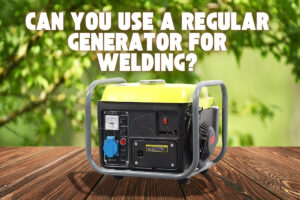Which fuel type is best for generators?
In a world where electricity powers our daily lives, having a reliable backup power source is more important than ever.
But when it comes to generators, you have a lot of options. But which fuel should you choose? Gasoline, propane, natural gas, or diesel? Each fuel type has its own pros and cons, so the choice is highly dependent on personal needs and circumstances.
This article is designed to guide you in choosing the right generator fuel type for your specific needs. By exploring the pros and cons of each fuel, we’ll help you make the best decision.

How much fuel does a generator use?
Generator fuel consumption can vary widely based on a number of factors, including the generator’s power output, load requirements, efficiency, and the type of fuel used. Fuel consumption is often provided as a rate, such as gallons per hour (GPH), cubic feet per hour (CFH), or liters per hour (LPH).
For example, a small portable gasoline generator with an output of 1,000 watts may use about 0.1 to 0.2 gallons (0.38 to 0.76 liters) of gasoline per hour at half load. On the other hand, a more powerful diesel generator with an output of 100 kilowatts may use about 10 to 15 gallons (38 to 57 liters) of diesel per hour at full load.
Similarly, fuel consumption for natural gas and propane generators is often given in cubic feet or cubic meters per hour. These generators will consume less fuel and provide more significant energy savings over the long term.
It is important to note that these figures are general examples and actual fuel consumption can vary greatly depending on the specific generator model and operating conditions. To determine the actual fuel consumption of a generator, it is best to refer to the manufacturer’s specifications or contact the generator supplier for accurate information.
Fuel type for generators
Gasoline generators
The most common fuel type for portable generators is gasoline. It is easy to find and can be purchased from almost any service station, making it a convenient choice for many people. Gasoline generators can be used both indoors and outdoors and are suitable for short-term power outages. They are also more portable than propane generators and can be moved from one place to another more easily when necessary.
However, there are some disadvantages to using gasoline as the power source for your generator:
Gasoline has a relatively short shelf life, which means it needs to be used or replaced frequently to ensure efficiency and reliability. Or only if the generator is used carefully, gasoline will perform well over time
It is expensive, more expensive than other types of fuel.
Gasoline produces more carbon monoxide than other fuels. If inhaled in large quantities over a long period of time, it can be harmful to health. (Especially if there is no ventilation system)
Diesel generators
Diesel engines are known for their fuel efficiency and ability to handle heavy loads, making them ideal for residential or commercial use. They provide more power and generally last longer. In some cases, they can also provide reliable power in emergencies when local utility companies are unable to provide electricity.
Diesel generators are cheaper in the long run than gas generators, especially if you choose a large generator that can power an entire home for several days.
However, diesel engines are also more complicated to start (and stop) than gas engines because their design requires compression. This makes them unsuitable for use as backup power in areas where frequent starting and stopping are required.
Propane generators
Propane is a cleaner-burning fuel with a longer shelf life than gasoline, reducing maintenance needs. It requires a separate storage tank, which can increase installation costs and considerations. For those looking to balance environmental concerns with power needs, propane generators are a good choice.
Propane generators are better for long-term use. They also have lower emissions than gasoline engines due to their lower compression ratio (the compression ratio is the number of times the engine’s pistons are compressed per cycle). Since propane is stored under pressure in liquid form, it produces more energy per gallon than gasoline. This means that an engine using propane fuel can run on a tank of fuel longer than an engine using gasoline before running out of fuel.
Propane generators are great for powering large appliances like refrigerators and freezers during power outage emergencies. They are also suitable for powering an entire home or business during a power outage, as they can run on LPG or natural gas fuel sources.
Natural gas generators
Natural gas generators are similar to diesel or gasoline generators but use natural gas instead of fuel oil or gasoline. Natural gas is a clean-burning option that can be connected directly to a home’s natural gas supply line, providing a convenient and continuous fuel supply. However, they require specialized installation and are less portable due to their reliance on fixed natural gas lines.
Natural gas has a lower viscosity than diesel and gasoline, resulting in less friction on components and longer life. Natural gas generators produce less noise than other generators, making them ideal for use in homes or offices with noise restrictions, such as hospitals and schools.
Solar/wind generators
These generators are made from renewable energy sources such as solar panels and wind turbines. The generators use sunlight or wind to generate electricity, so they can be used even when there is no natural gas supply or when gasoline or diesel fuel is unavailable.
They are quiet and environmentally friendly. However, their efficiency is largely dependent on the availability of sunlight or wind, which makes them less reliable in certain weather conditions.
Which fuel type is best for generators?
When determining which fuel type of generator is best for your needs, it is crucial to weigh the advantages and disadvantages of each fuel type. The following factors can help determine which generator is best for your needs.
Shelf life
The term “shelf life” describes how long a fuel can be stored without starting to go bad. This factor relates to how often you use your generator, as you want to prevent the fuel from going bad before you use it. For example, when considering the shelf life of propane and diesel generator fuels, both have relatively long shelf lives compared to gasoline.
Storage
Consider whether you have storage space and whether the fuel type can be stored.
Most types of generator fuel except natural gas can be stored in tanks or tanks. If the supply from the natural gas utility is cut off, the generator will stop working. Solar or wind generators, on the other hand, do not require the storage of fuel.
Delivery
Depending on the fuel type, your fuel supply can be picked up, delivered, or transported to your facility. Natural gas generators can be connected to the natural gas pipeline, and portable home generators can be refilled at a gas station near you. However, diesel delivery can be difficult in emergencies and inclement weather, so it is important to consider these variables.
Environmental perspective
From an environmental perspective, evaluate the emissions and noise levels of different generators. Propane and natural gas are favorable. As we have already pointed out, these fuels burn the cleanest compared to other available generator options on the market. Gasoline and diesel generators have higher emissions, and diesel generators generally emit less carbon monoxide but more particulate matter. Solar generators, on the other hand, are emission-free and are the most environmentally friendly option.
As for noise levels, gasoline generators are generally noisier, but noise levels vary by model. Propane and natural gas generators are generally quieter than gasoline or diesel. Solar generators are almost silent, making them ideal for noise-sensitive environments.
Safety
Regardless of the type of fuel, safety is critical. Diesel is safer than other fuel types and has a lower combustion rating than natural gas or propane. Gasoline, on the other hand, is explosive and easily ignites if spilled.
Portability
- Gasoline and propane: Generally portable and suitable for camping or RV use.
- Diesel: Less portable due to size and weight but can meet industrial needs for backup power.
- Natural gas: Not mobile, as it requires connection to a natural gas pipeline.
- Solar: Varies by system; smaller units are portable, but larger units are stationary.
Budget
Balance the initial purchase price with the ongoing costs of fuel and maintenance. Some fuel types, like diesel, may have higher upfront costs, but may be more economical in the long run.
Running costs
- Gasoline: May cost more over time due to frequent refueling.
- Diesel: More fuel efficient and more cost-effective in the long run.
- Propane: Mid-range fuel cost, cheaper than gasoline.
- Natural gas: Generally cheaper but requires upfront installation costs.
Solar: Free energy, but high initial installation costs.
Maintenance costs
- Gasoline and diesel: Require regular maintenance, including oil changes and gasoline fuel stabilizer.
- Propane and natural gas: Lower maintenance costs, cleaner burning fuel.
- Solar: Minimal maintenance, mostly occasional checks on battery condition and solar panels.
Conclusion
Choosing the right fuel type for a generator depends on your needs, considering portability, fuel availability, cost, efficiency, and environmental impact. Gasoline generators are convenient and portable, but they cost a lot to run. Diesel generators are durable and efficient but may be more expensive than before. Natural gas generators offer a steady supply of fuel and low emissions, but installation can be complicated. Propane generators provide clean, reliable power, especially in remote areas. Dual-fuel generators offer the flexibility to switch between fuels.
You can match a generator to your needs
- Home backup: For short power outages, gasoline, propane, or natural gas generators are effective choices. They provide enough power for basic household appliances and can be easily integrated into home systems.
- RV or camping: Choose a gasoline or propane generator, which are easy to carry. They offer convenience and can meet the typical power needs of camping equipment.
- Construction sites: Diesel generators are ideal for construction sites because of their power, efficiency, and durability. They can handle heavy equipment and run for long periods of time.
- Off-grid living: Consider using a solar generator, which is a sustainable and environmentally friendly choice. Although they rely on sunlight, they run quietly and are perfect for reducing your carbon footprint.
If you’re still unsure which generator is right for you, don’t hesitate to seek professional advice. We welcome you to explore our extensive range of generators, designed to suit a variety of needs and applications.
Contact our factory today for expert advice and assistance. Together we can ensure you’re never left in the dark.

May Ge
Outdoor Machinery Export Manager 6-Yr Exp 🌍 ∣ BSCI, EPA, EURO V, CE ∣ Generator, High-pressure Washer, Water Pump, Engine, Floor Scrubber ∣ 🚀 24/7 Second Reply
TAIZHOU BISON MACHINERY CO.,LTD | Ningbo University of Technology
Our related blog

How to use the generator
Want to know how to use the generator? This step-by-step guide will provide everything you need to know to operate your generator effectively.

Can you use a regular generator for welding?
MATCHUP will explore the technical requirements of a welding power source, what regular generators can actually handle, and help you understand the difference between them.

What are the main components of a generator?
MATCHUP will introduce the main components of a generator, how they work together, and their role in efficient power generation.

winterizing your portable generator
Below is a complete guide to winterizing your portable generator. It contains all the tips and tricks you need to know. Keep reading to learn more.










